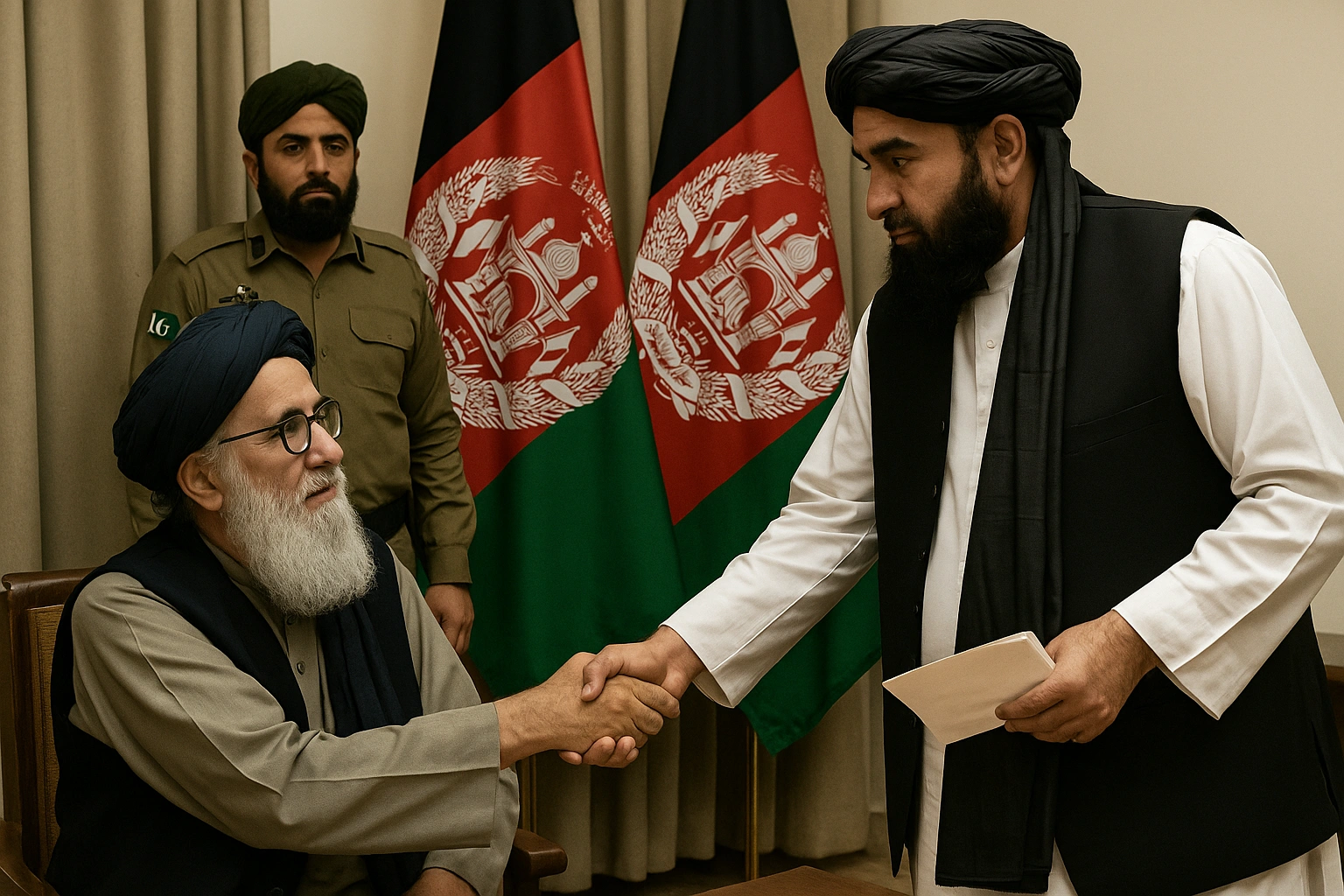Pakistan and Afghanistan have always had a complicated relationship that has hindered cooperation and development between the two states. New recent developments, however, point towards improving bilateral relations and a sense of stability between the two nations in a gradual and cautious motion. One of the important events that shows this new direction is the Taliban government’s arrest and the 45-day prison sentence given to prominent cleric Abdul Sami Ghaznavi.
Ghaznavi took this action because he issued a fatwa in which he called for Jihad against Pakistan and strongly opposed the ban on girls’ education. The Afghan government’s choice demonstrates both its position on internal supremacy and its dedication to regional peace and stability.
The assessment made by the Taliban government to arrest and punish Ghaznavi; it marks a new development in the Afghanistan’s government plans for dealing with conflicts in the country and with external forces including Pakistan. Ghaznawi’s fatwa rousing Jihad against Pakistan put at stake the delicate peace in the region and the larger opportunities for cooperation between two neighbor countries which are bonded by history, culture and security considerations.
The arrest demonstrates that the so called religious freedom does not provide a passage to the incitement of hatred and violence. This contributes towards the ideal of governance which demonstrates concern for the country and its stability and shifts the balance of power away from certain ideologies.
Maintaining Stability via Strict Governance
Under the pretense of clerical freedom, Abdul Sami Ghaznawi’s arrest makes it abundantly evident that religious authority cannot be abused to incite hatred or extremism. Religious leaders have a lot of power, and when that power is used to incite violence or widen rifts, the effects go well beyond just what is said. For regional peace, the Ghaznawi’s fatwa, which called for jihad against Pakistan, directly opposed peace initiatives and weakened the spirit of fraternity and collaboration which are important. The Afghan Taliban’s government displays that it is committed to maintaining constancy both within the nation and in its international relations by imposing stringent legal actions against such provocations. This strategy reflects the ruling administration’s shift towards more balanced governance, which prohibits inflammatory speech, even from highly esteemed members of the religious establishment.
Prioritizing National Interests over Ideological Pressures
The keenness of Taliban’s to challenge a well-respected cleric such as Ghaznavi demonstrates a strong internal determination to prioritize national interests over ideological or factional pressures. This is a noteworthy development. In a political environment where conflicting religious and tribal allegiances are common. These overconfident supremacy choices are essential or important for developing an honestly upright Islamic leadership accomplished of inclusive and responsible governance, despite the likelihood of controversy and internal opposition. They (Taliban) are showing both local and foreign observers that they are prepared to follow policies that support Afghanistan’s long-term stability by refusing to back down from a powerful priest. This might create chances for interaction with neighbors in the region, especially Pakistan, creating a less driven environment.
A Foundation for Stronger Bilateral Relations
The tense relation between Afghanistan and Pakistan have all contributed to the history of Border clashes, cross-border militancy, political allegations, and conflicting security interests. This already problematic dynamic was impaired by Ghaznawi’s persistent attempts to incite conflict. Therefore, his sentencing is a correction in direction—an attempt to stop radical discourse that undermines peace efforts. Regardless of its importance, this step is just the only component of a complicated process. For deeper bilateral ties and true stability, mutual respect, confidence-building initiatives, and ongoing communication are very important. On the other hand, the Taliban government’s firm move is a indicator that Afghanistan knows how important it is to silence internal voices that threaten peaceful concurrence.
Suggestions
Opposing extremism can be achieved by developing moderate explanations of Islam that emphasize peace and coexistence through the establishment of joint Pak-Afghan religious councils and cultural exchange initiatives. With improved border security collaboration through cooperative patrols and intelligence exchange Human trafficking and Terrorism could be reduced. By strengthening trade and infrastructure, connections can promote Interdependence and regional stability. Bilateral ties could be enhanced with the engagement of transparent human rights, foster mutual trust, and improve Afghanistan’s international standing, particularly when it comes to promoting education for girls and marginalized groups.
Insights
The arrest of Abdul Sami Ghaznavi’s by the Taliban government indicates Kabul’s dedication to raising peace and stability with Pakistan and goes beyond simple discipline. They send a strong message against those who provoke conflict under the pretense of religion by accepting responsibility and opposing extremist influences. In the field of communication, some constant initiatives like culture, security, economy, and human rights will be necessary or needed to furnace closer ties between the two countries. Peace and collaboration will help both nations by resting the groundwork for development and prosperity.








